Outputs

Who Are the High-Cost Users? A Method for Person-Centred Attribution of Health Care Spending
2016
Healthcare payers have traditionally focused on payments to providers within specific sectors such as acute, physician, pharmacy and other providers. Recently, there are renewed efforts to draw attention away from sector specific costs and focus on the characteristics of individuals […]
Journal Article
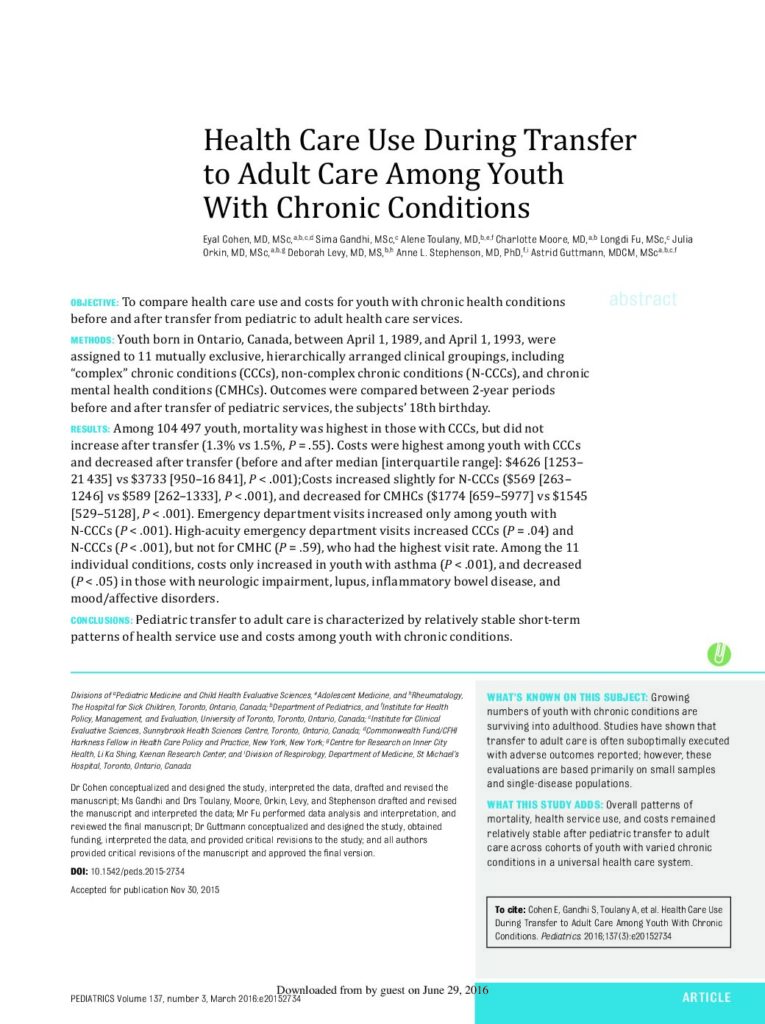
Health Care Use During Transfer to Adult Care Among Youth With Chronic Conditions
2016
Transfer of youth with chronic health conditions to adult care is often suboptimal due to factors such as emotional and cognitive developmental challenges, lack of individual and family-centered social supports, communication and coordination challenges between health care sectors, and a […]
Journal Article
Cost Trajectories for Cancer Patients
2016
Background Health care spending is known to be highly skewed, with a small subset of the population consuming a disproportionate amount of health care resources. Patients with cancer are high-cost users because of high incremental health care costs for treatment […]
Journal Article
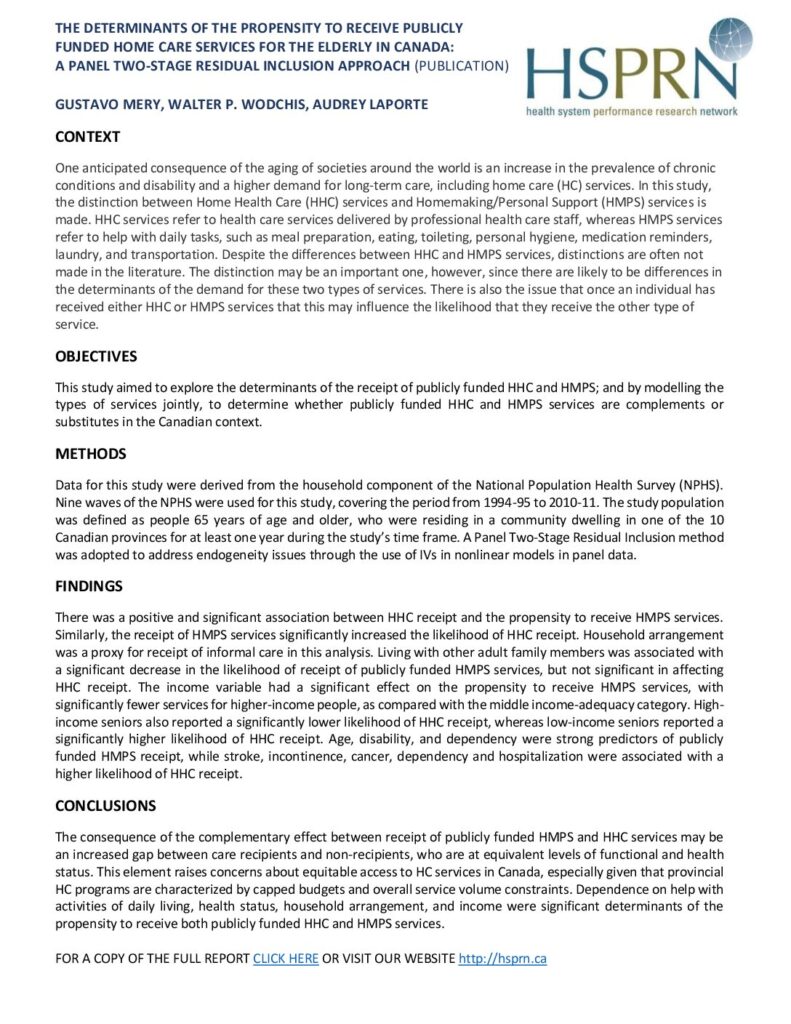
The Determinants of the Propensity to Receive Publicly Funded Home Care Services for the Elderly in Canada: A Panel Two-Stage Residual Inclusion Approach
2016
One anticipated consequence of the aging of societies around the world is an increase in the prevalence of chronic conditions and disability and a higher demand for long-term care, including home care (HC) services. In this study, the distinction between […]
Journal Article

Integrating Long-Term Care Into a Community-Based Continuum
2016
A growing body of international evidence suggests that aging populations are not, in themselves, major drivers of rising health care utilization, since utilization is increasing across all age groups. However, as people age they are more likely to experience multiple […]
Journal Article
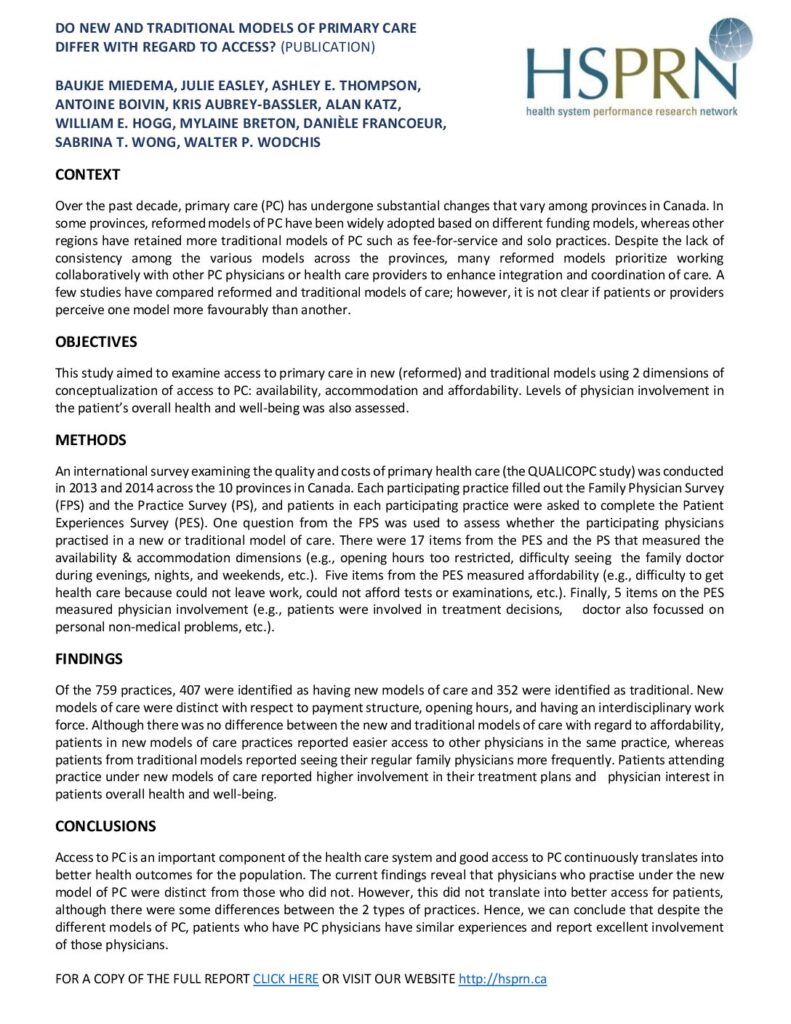
Do New and Traditional Models of Primary Care Differ With Regard to Access?
2016
Over the past decade, primary care (PC) has undergone substantial changes that vary among provinces in Canada. In some provinces, reformed models of PC have been widely adopted based on different funding models, whereas other regions have retained more traditional […]
Journal Article
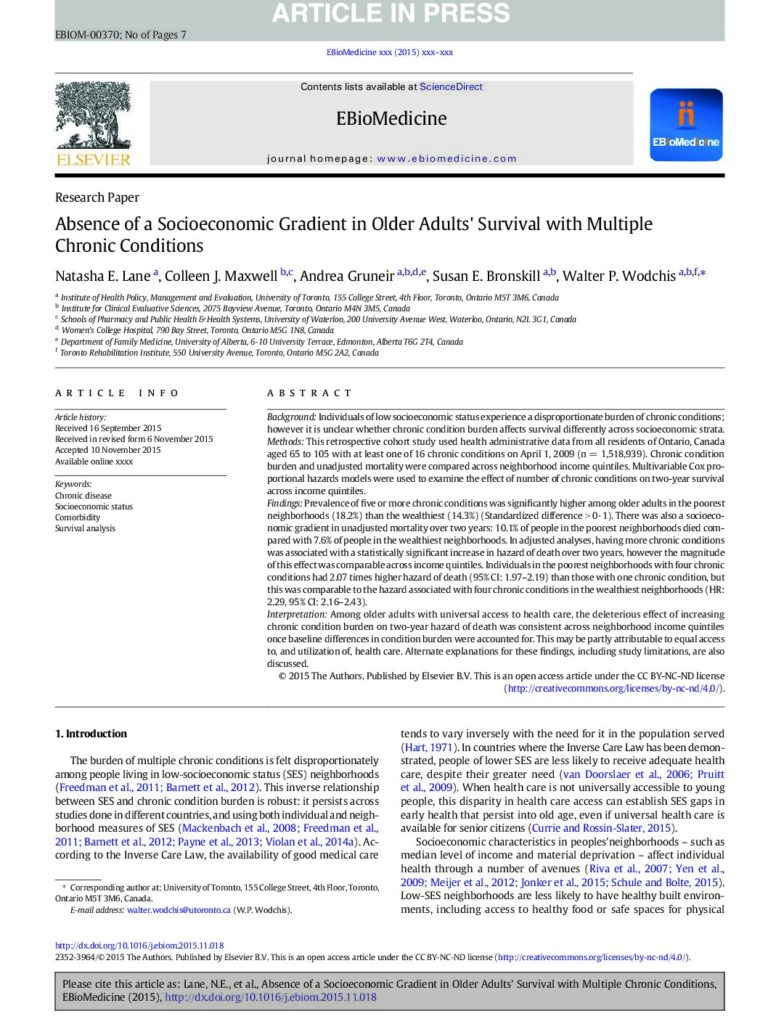
Absence of a Socioeconomic Gradient in Older Adults’ Survival With Multiple Chronic Conditions
2015
The burden of multiple chronic conditions is felt disproportionately among people living in low-socioeconomic status (SES) neighborhoods. This health-wealth gap is partly attributable to disease-promoting features of poorer neighborhoods (e.g. low grocery store availability) and more unhealthy behaviors (e.g. smoking) […]
Journal Article
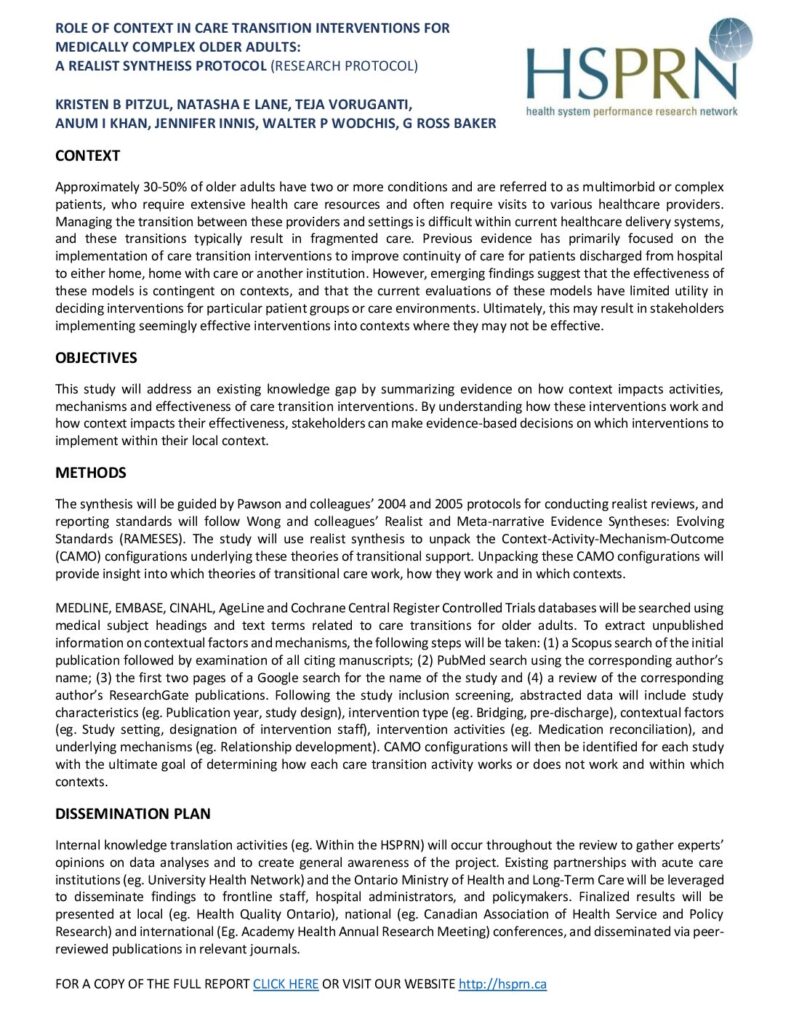
Role of Context in Care Transition Interventions for Medically Complex Older Adults: A Realist Synthesis Protocol
2015
Approximately 30-50% of older adults have two or more conditions and are referred to as multimorbid or complex patients, who require extensive health care resources and often require visits to various healthcare providers. Managing the transition between these providers and […]
Journal Article
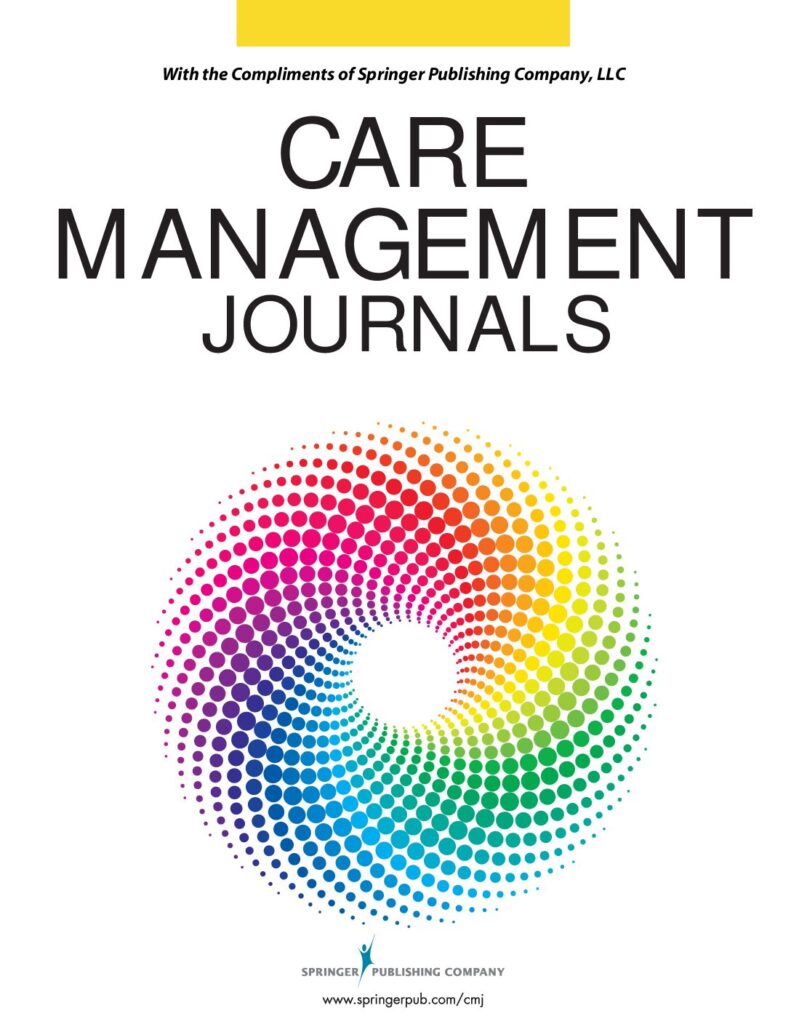
A Patient-Centered Transitions Framework for Persons With Complex Chronic Conditions
2015
Hospitals are under increasing pressures by governing bodies to meet mandated performance standards and fiscal targets. As a result, hospitals are incentivized by funders to discharge patients efficiently and effectively. Being discharged from hospital is a vulnerable process for patients. […]
Journal Article
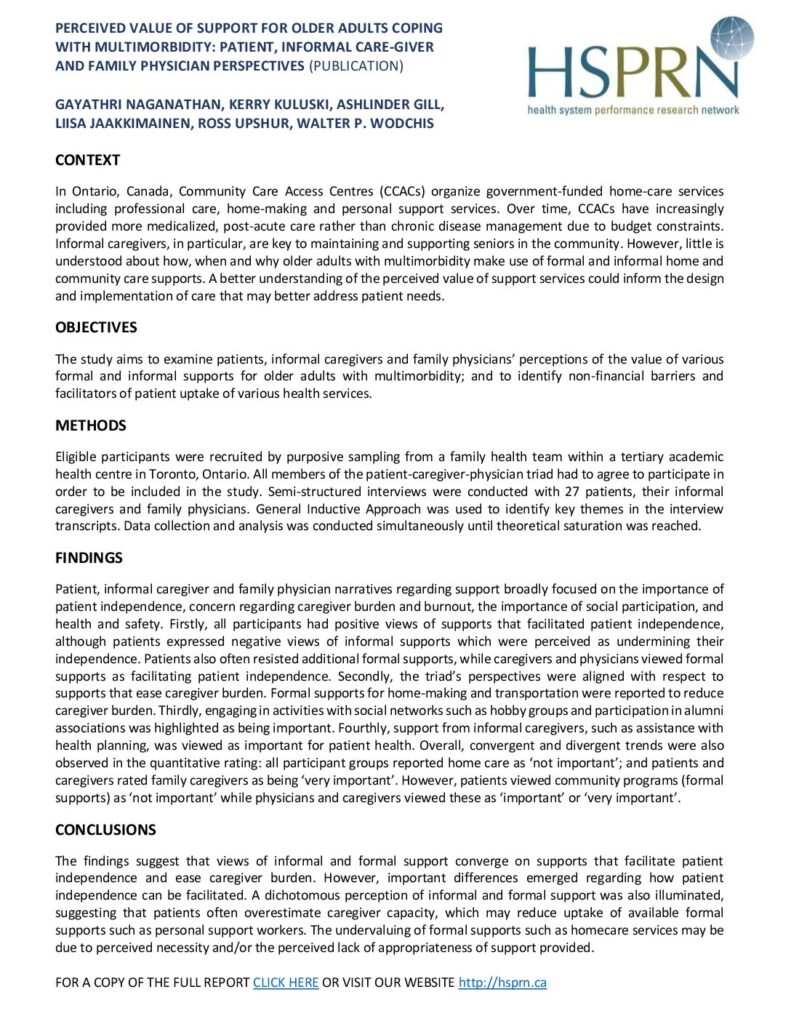
Perceived Value of Support for Older Adults Coping With Multimorbidity: Patient, Informal Care-Giver and Family Physician Perspectives
2015
In Ontario, Canada, Community Care Access Centres (CCACs) organize government-funded home-care services including professional care, home-making and personal support services. Over time, CCACs have increasingly provided more medicalized, post-acute care rather than chronic disease management due to budget constraints. Informal […]
Journal Article